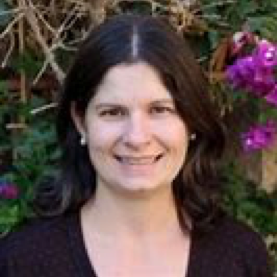
Social Justice in the Central Valley: Back from the Smoke (Act Two)
Monday, March 11, 12:00-8:45pm
Schedule of Presentations:
- 12:00-1:00pm, Dr. Catherine Garoupa White, FDC 118
- 1:00-2:00pm, Dr. Heidy Sarabia, FDC 118
- 2:30-3:30pm, Elisa Oceguera, Mainstage Theatre
- 3:30-5:00pm, Farmworker Family panel, Mainstage Theatre
- 5:00-6:00pm, Break
- 6:00-8:45pm, Keynote Program: Dvera Saxton and Sarah Horton, Mainstage Theatre
Plenary Speaker
12:00-1:00pm, FDC 118
Dr. Catherine Garoupa White
Dr. Catherine Garoupa White joined Californians Against Fracking as the Coalition Coordinator in August 2016. Garoupa White is an activist-scholar, parent, and third generation Central Valley resident dedicated to the movements for social and environmental justice in California and globally. Dr. Garoupa White holds a Master of Social Work degree from California State University (CSU), Fresno, where she focused on community organizing and ethics. Upon completing her MSW, Garoupa White spent 7 months in northern India organizing for informed self-governance for women, and 5 years organizing with and ultimately directing the Central Valley Air Quality Coalition (CVAQ) in her home region of the San Joaquin Valley, one of our nation’s most polluted air basins.

In 2016, Garoupa White obtained her Ph.D. in Geography from the University of California, Davis, specializing in coalition building strategies within California’s environmental and environmental justice movements. Dr. Garoupa White has taught courses in community organizing, California geography, youth community development, and environmental justice at UC Davis, CSU Fresno, and currently serves as adjunct faculty at Stanislaus State and Columbia College.
Presentation
"Reframing Air Pollution as a Public Health Problem and Environmental Injustice in California’s San Joaquin Valley: A Coalition Based Approach"
Presentation Abstract
The San Joaquin Valley is one of the poorest and most polluted air basins in the United States, and while people’s health markedly suffers, efforts to clean the air are hard fought in the polarized political climate. While the dominant discourse around air pollution has narrowed to members of the public “making one change” in their lives such as riding their bike instead of driving, clean air advocates from a broad range of backgrounds merged efforts to advance a movement around the public health crisis caused by outdoor air pollution.
Multi-scalar, collaborative work is required to navigate the complex regulatory structures governing outdoor air quality. As this research shows, advocates’ capacity is enhanced by tapping messengers from various backgrounds, from mothers with asthmatic children to the doctors who treat them to the lawyers familiar with the regulatory mandates. In addition to breadth of expertise, coordinating members with different organizing philosophies allowed for different groups to take on various roles while buffering negative backlash from authorities.
This paper documents how, against stacked sociopolitical odds, clean air advocates have leveraged coalition organizing to advance a public health frame around air pollution in the San Joaquin Valley and to shed some light on the environmental injustices occurring. This paper demonstrates that, within existing organizational constraints and capacities, advocates provided an important catalyst for movement building and contributed to constructing a public health frame around air pollution in the San Joaquin Valley.
Plenary Speaker
1:00-2:00pm, FDC 118
Dr. Heidy Sarabia
Dr. Heidy Sarabia is Assistant Professor of Sociology at Sacramento State. Her research has been shaped by her experiences as an immigrant from Mexico living in the U.S. Her research focuses on globalization and transnationalism, with a specific focus on global inequality and how visas and passports shape stratification, as well as how individuals and organizations mobilize collectively to create societal change to challenge inequality and demand justice across borders. Related to the issue of stratification, her research focuses on illegality as a social regime, and how this regime shapes border crossing practices and settlement in the U.S. She also focuses on the process of immigrant adaptation and incorporation into the US.
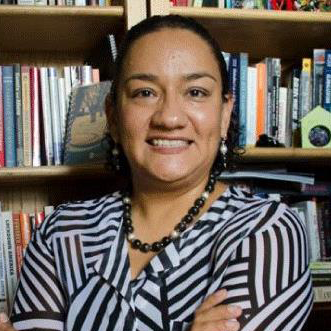
Social fabric, access to legal and medicalinstitutions, and the role legal status plays in these processes. She has published widely, including articles on “Detention, Incarceration, and Deportation,” and “Unaccompanied Undocumented Minors,” “Citizenship in the Global South: Policing Irregular Migrants and Eroding Citizenship Rights in Mexico,” and studies on U.S.-Mexico borderland violence.
Presentation
“Detention, Incarceration, Deportation: the Fate of Undocumented Minors at the U.S.-Mexico Border”
Dr. Sarabia is an Assistant Professor of Sociology at California Sate University, Sacramento. Her research has been shaped by her experiences as an immigrant from Mexico living in the U.S. Three themes summarize her research agenda. First, she is interested on globalization and transnationalism. Specifically, she studies global inequality and how visas and passports shape stratification, as well as how individuals and organizations mobilize collectively to create societal change to challenge inequality and demand justice across borders. Second, related to the issue of stratification, she is interested in particular in illegality as a regime, and how it shapes border crossing practices and settlement in the U.S. Finally, her research interests also include the process of immigrant adaptation and incorporation into the U.S. social fabric, access to legal and medical institutions, and the role legal status plays in these processes.
Presentation Abstract
The issue of unauthorized migration has been constructed as an issue of illegality through a socio-political process. This process has historically racialized Mexicans as the main targets of border enforcement and quintessential "illegal aliens." This presentation will explore how the decline of Mexican migration to the U.S. has shifted the U.S. attention to Central American migration, and reveal how this new focus effectively expands the boundaries of illegality. We argue that by framing children, families, and political refugees as the legitimate targets of deportation, by legally closing the doors to these immigrants for avenues to adjust their status, by actively raiding those deemed as deportable, and by re-framing the political grounds for asylum claims, the U.S. government continues to effectively expand and legitimize the boundaries of illegality. We then show how children at the border are affected by the expansion of illegality through specific detention, incarceration, and deportation tactics currently deployed at the U.S.-Mexico border. —Dr. Aida Rodriguez (New School) is a co-researcher and co-author.
Plenary Speaker
2:30-3:30pm, Mainstage Theatre
Elisa Oceguera
Elisa Oceguera is a PhD candidate in the Cultural Studies program at UC Davis, where she investigates the role of care labor in sustaining queer sociality in farmworker communities. Her research interests include community-based methodologies, food politics, critical race theory, environmental justice, testimonios, autonomous Marxism, queer theory, epistemologies of resistance, and community formation and social movements. Her dissertation is entitled In and Against Community: Heterodox Subjectivities in Agricultural California. Elisa has published on “Intersecting Differences: Organizing for Social Change in Low-Income Communities” and “Ethics, Collaboration, and Knowledge Production: Digital Storytelling with Sexually Diverse Farmworkers in California.” As a queer xicana organizer, questions of praxis are constantly at the forefront of her work. Elisa earned undergraduate and graduate degrees in Ethnic Studies (from Humboldt State and San Francisco State). Through her participation in Accion Zapatista (a collective committed to theorizing and practicing Zapatismo in their own locale), she learned about the significant relationship between research, action and dignity. She hopes to continue engaging in community-based research projects that seek to build community self-determination.
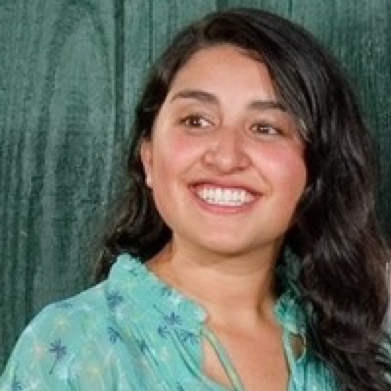
Presentation
"Sexualidades Campesinas: an LGBTQ Farm Worker Digital Stories Project”
Plenary Speaker
2:30-3:30pm, Mainstage Theatre
Oralia Maceda
Oralia Maceda represents the Binational Center for Indigenous Oaxacan Development (CBDIO), which implements projects on worker’s rights to provide orientation, education, training, counseling and referrals. CBDIO promotes intensive training of indigenous interpreters as a medium of communication between monolingual indigenous migrants and various government institutions. CBDIO also works to increase the participation of indigenous women in the life of the migrant community, providing training in and promotion of gender equality so they may exercise self-determination in their civic lives. CBDIO promotes health education on prevention and treatment of illnesses and facilitates access to health and social services, and helps indigenous migrants learn how to improve the living conditions of the communities in which they reside.
Keynote Speaker
6:00-8:45pm, Mainstage Theatre
Dr. Dvera Saxton
Dr. Dvera Saxton is Assistant Professor of Anthropology at California State University – Fresno. She was a post-doctoral research associate in SSEHRI in 2013-2014. She completed her Ph.D. in Anthropology at American University with a dissertation entitled Layered Disparities, Layered Vulnerabilities: Farmworker Health and Agricultural Corporate Power On and Off the Farm, which draws from two years of ethnographic field research in the Pájaro and Salinas Valleys of California’s Central Coast. Through her engaged explorations of farmworker experiences with worker’s compensation systems, pesticide policies and practices, state and non-profit social services, and the development of agribusiness-sponsored corporate social responsibility and philanthropy programs, Dvera documents how many of the policies and practices proposed as solutions to farmworker health actually perpetuate vulnerabilities and social and environmental suffering.
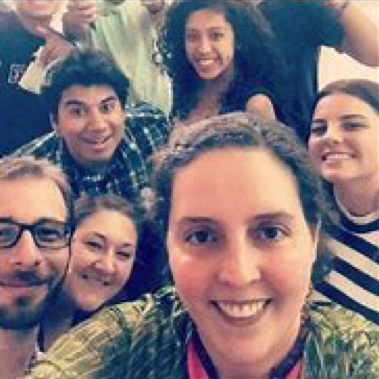
During her research, Dvera mobilized a combination of methodological approaches, developing strong rapport with farmworker families and actively participating in the campaign against the toxic soil fumigant pesticide methyl iodide. Her ongoing research and organizing activity incorporate farmworker knowledge of and experiences with toxic pesticides and work-related injuries within the context of transnational agricultural migration. Her advocacy work fosters trans-worker solidarity as well as alternative, non-capitalist strategies to redress shared social and environmental harms in underrepresented communities.
Keynote Speaker
6:00-8:45pm, Mainstage Theatre
Dr. Sarah Horton
Dr. Sarah Horton is Associate Professor of Anthropology at the University of Colorado, Denver. Her areas of expertise include Latino health disparities, migration and transnational-ism, migrant access to care, cross-border health, and the occupational health of farmworkers. She earned her PhD in Anthropology with Distinction from the University of New Mexico in 2003 and completed a 2-year postdoctoral fellowship in Harvard University’s Department of Social Medicine (2003-2005). Dr. Horton served on the UCSF research faculty from 2005 to 2007, where she was lead ethnographer on an NIH-funded study of oral health disparities among Mexican American farmworker children.
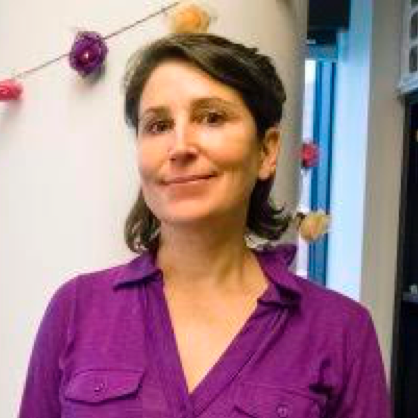
Dr. Horton has published over 20 peer-reviewed articles in journals such as Social Science & Medicine, Journal of Immigrant & Minority Health, Medical Anthropology Quarterly, American Anthropologist, and American Ethnologist, and was awarded the Steven J. Polgar Prize for the best article published in Medical Anthropology Quarterly by the Society for Medical Anthropology in 2011. Her research has been funded by the Wenner Gren Foundation for Anthropological Research and the University of California Institute for Mexico and the United States. Her book, “They Leave Their Kidneys in the Fields:” Illness, Injury, and “Illegality” in California’s Central Valley, was published in 2016 (U. of California Press) and earned the 2017 Robert B. Textor and family Prize for Excellence in Anticipatory Anthropology. The book draws on a decade of ethnographic fieldwork in the Central Valley to examine causes for the high rate of heat-related deaths among immigrant farmworkers. Horton shows that even as growers, the media, and state occupational safety officials tend to naturalize farmworker deaths from heart stroke, U.S. labor, immigration health care and food safety policies all play a role in this tragedy. The book challenges official accounts of the causes and prevalence of heatstroke and outlines concrete policy solutions to remedy the problem. She has written reports for Cal-OSHA on how company food safety policies compromise workers’ health in the fields, and is working with several California labor advocacy organizations and nonprofits to encourage companies to change their policies. The book also challenges the common portrayal of undocumented immigrants as “identity thieves” and questions the validity of document-related criminal charges often levied against immigrants.
Updated: August 03, 2023